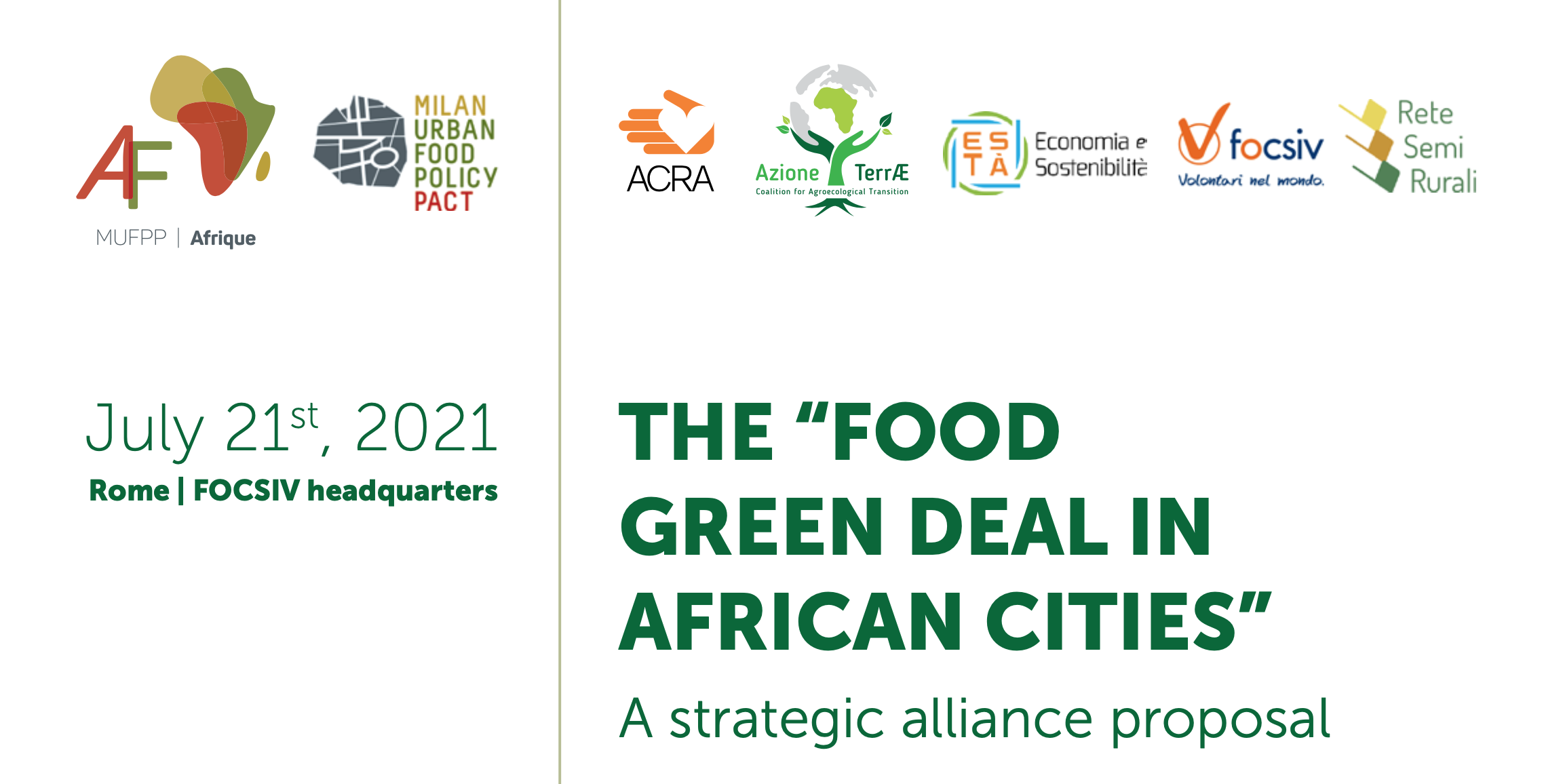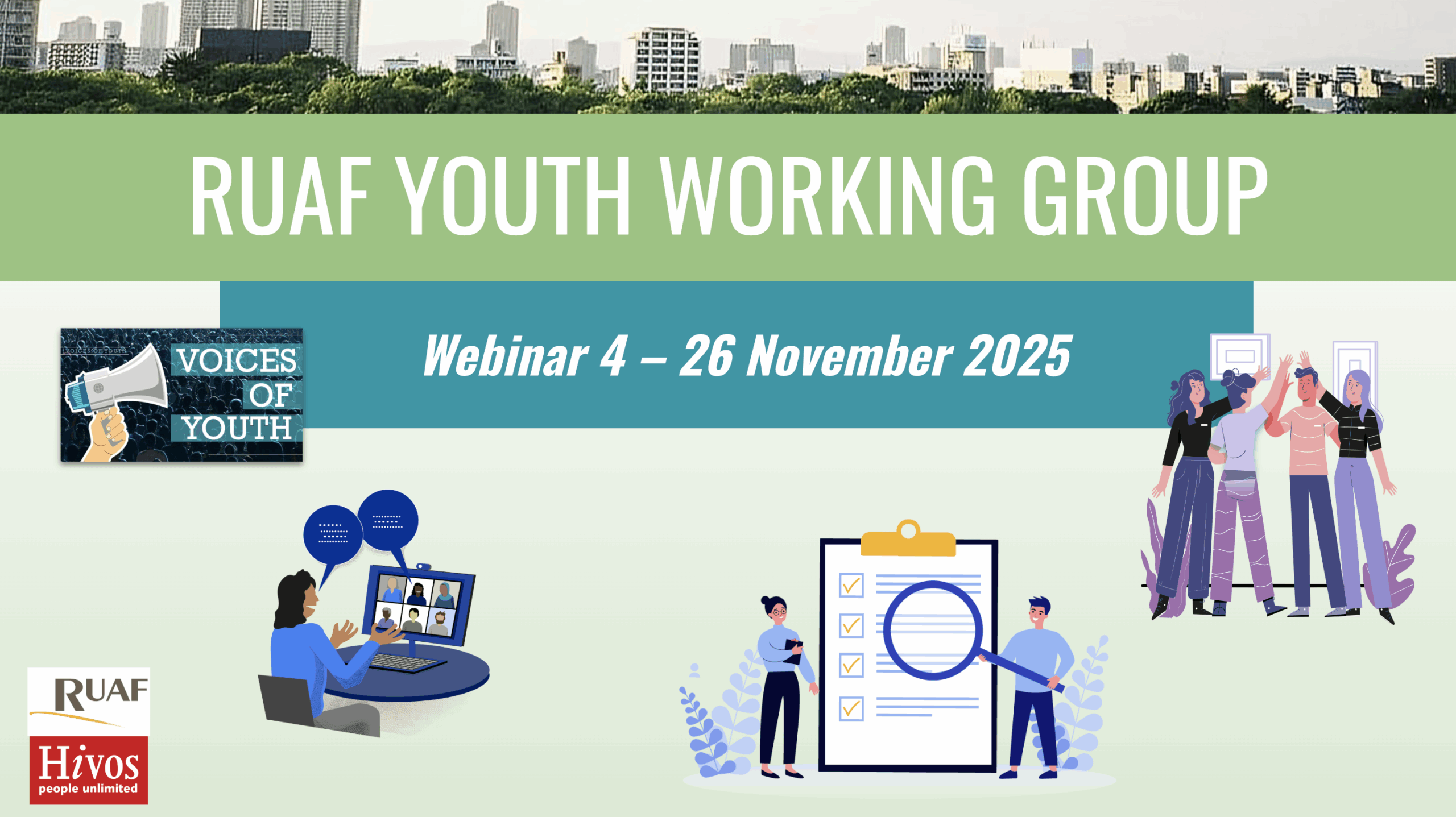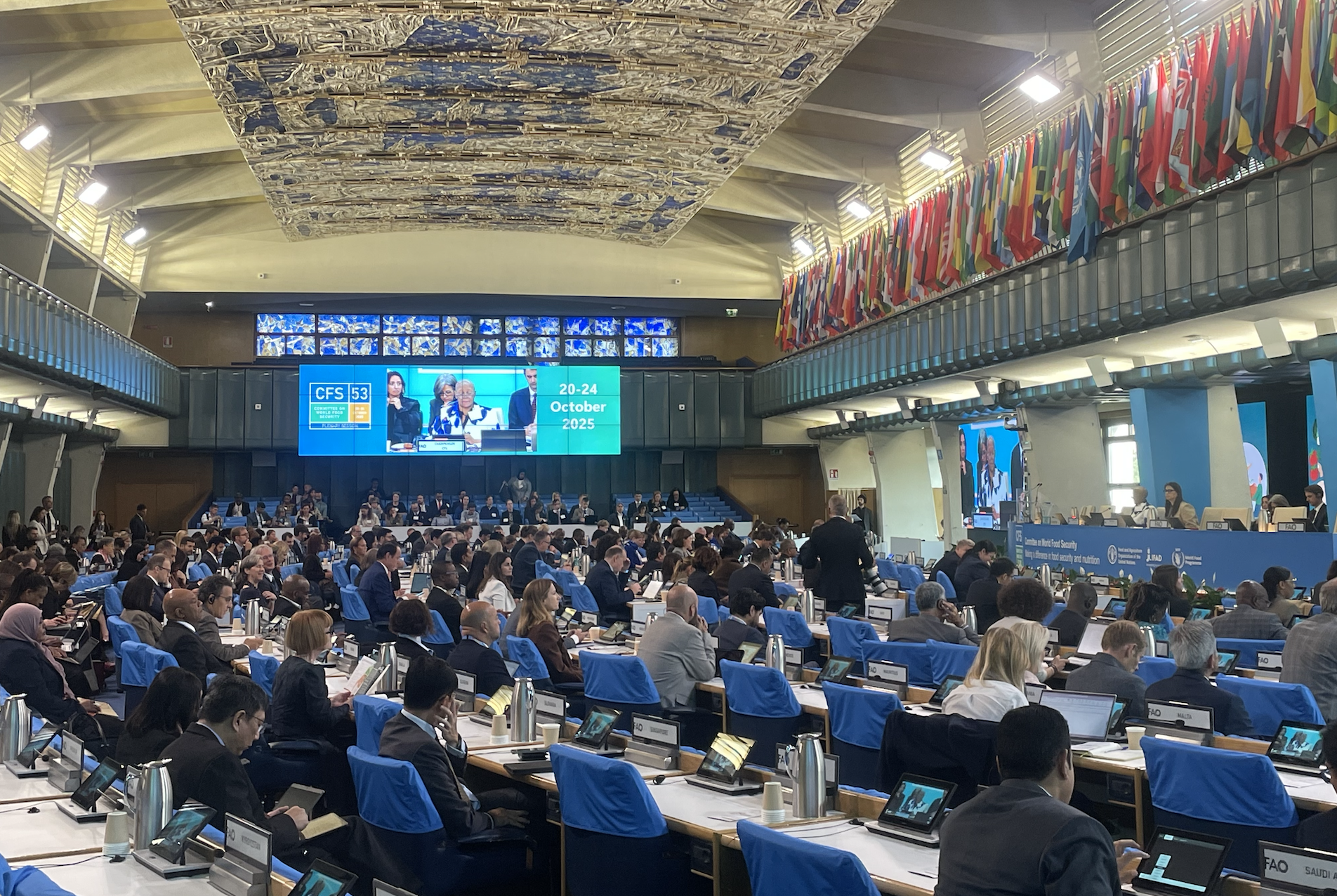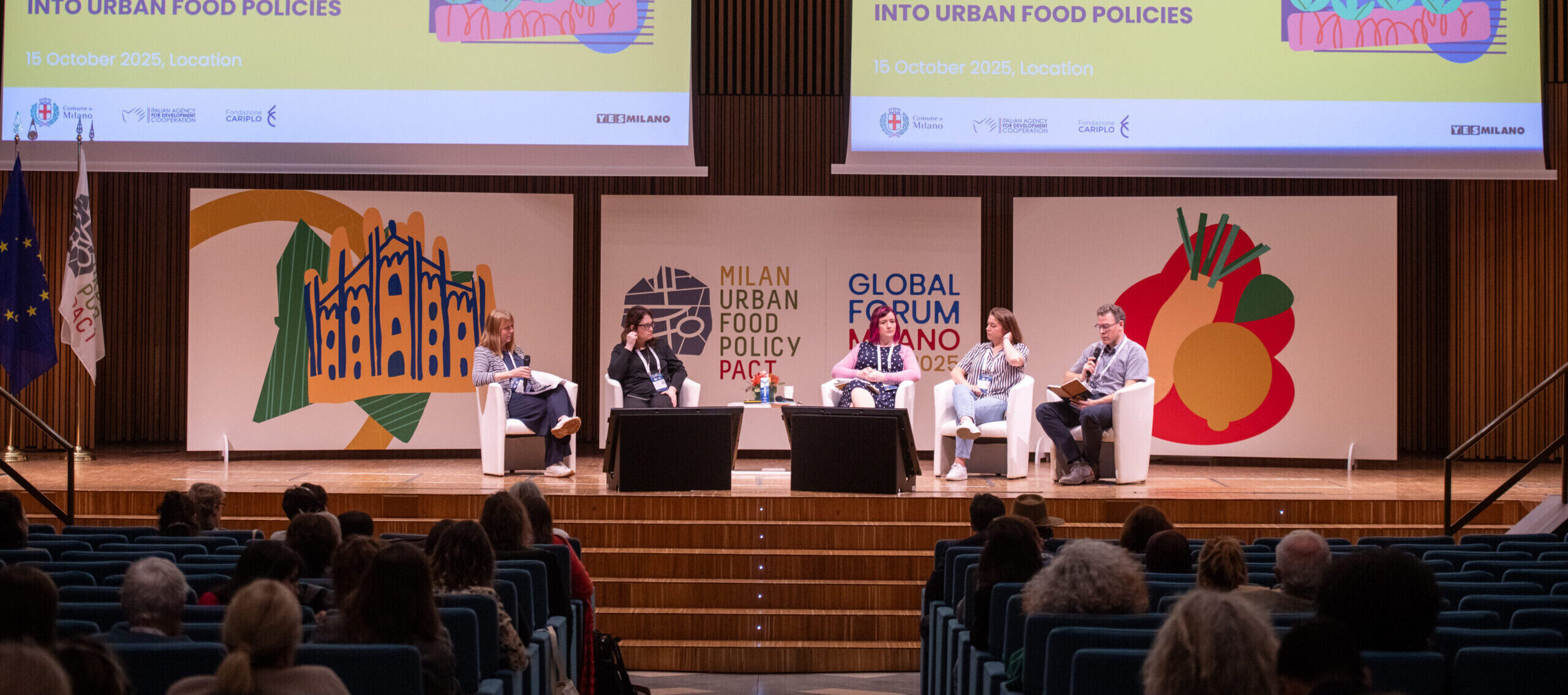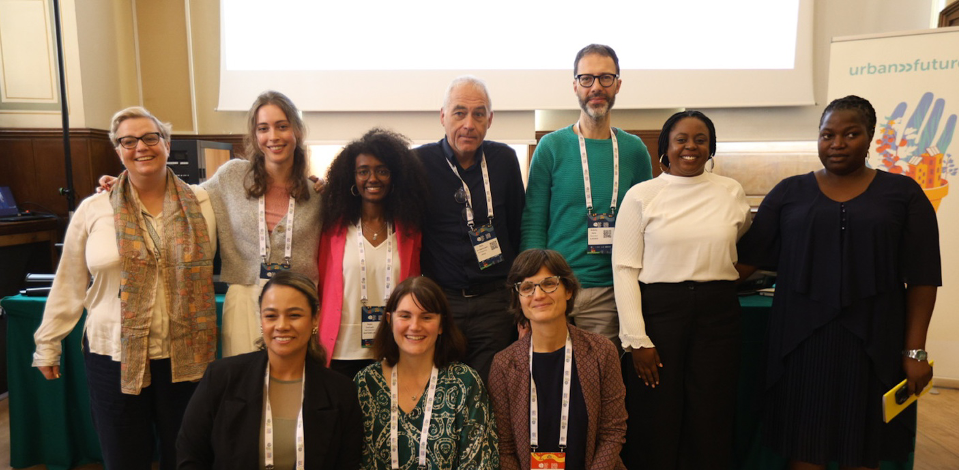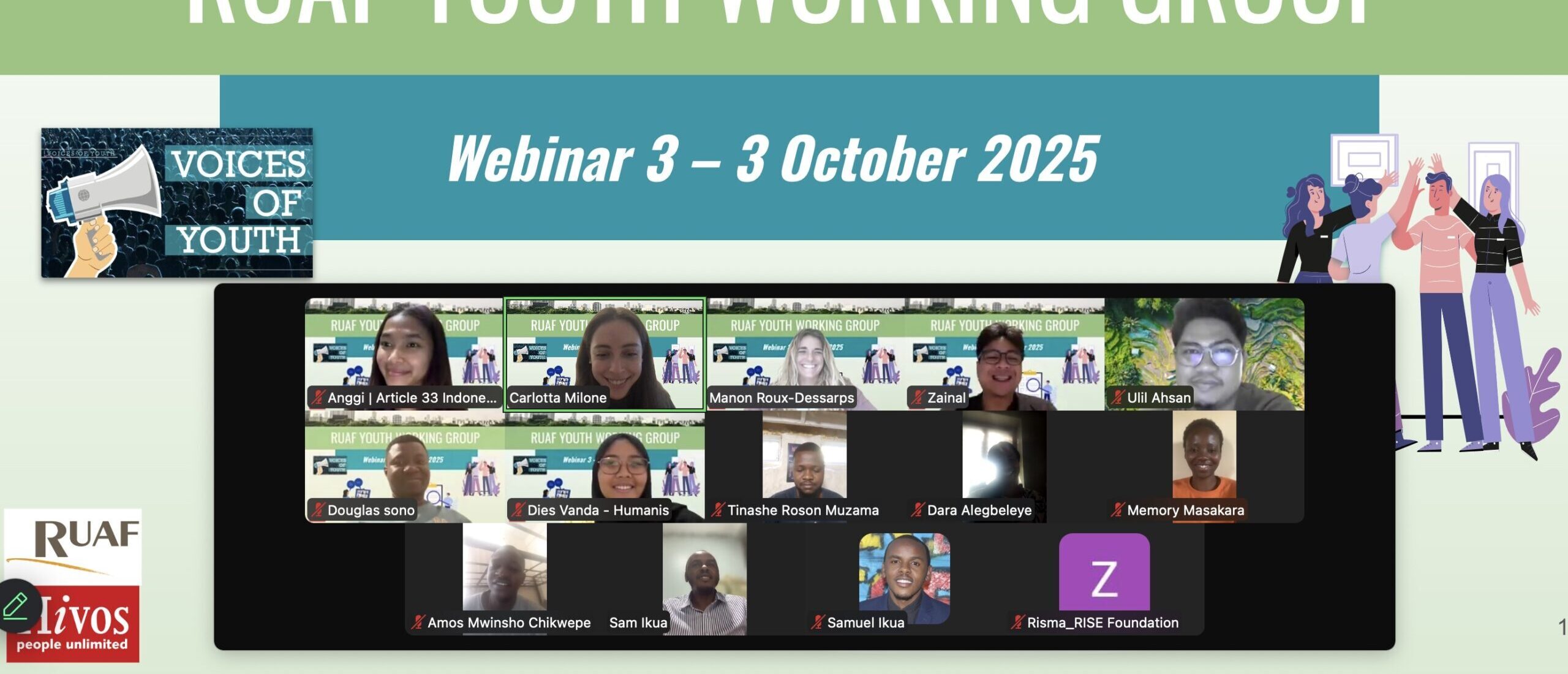Different actors, including cities, national governments, government agencies, foundations, universities, research centers, NGOs and networks gathered today at “Food Green Deal in African cities” event the to discuss how to strengthen the role of cities in the global governance of food systems. RUAF presented the new Milan Urban Food Policy Pact Monitoring Framework Handbook and Resource Pack, which provides recommendations to inform policy on how to integrate sustainable urban food policies into programmes and projects.
During the event ACRA, EStà, Rete Semi Rurali, FOCSIV and Azione TerrAE (Coalition for the agroecological transition) announced the creation of a new Alliance and launched a position paper on the connection among food systems, climate change and cities, food poverty fight and research role. The Alliance stems from the need to facilitate an effective multi-stakeholder dialogue between different stakeholders working in the food system sector, as highlighted in the Ouagadougou Declaration which suggested the creation of an “enabling environment for coordinated policies”.
The Ouagadougou Declaration
The Ouagadougou Declaration was signed on February 18th, 2021 at the end of the 4th African Regional Forum of the Milan Urban Food Policy Pact (MUFPP) held in Ouagadougou, Burkina Faso. The document expresses a clear will to strengthen the cities role in food systems global governance, alongside national governments and non-state actors. The Declaration reflects the African cities commitment to improve their own urban food systems and continues the path started with the previous Forums and Declarations (Dakar 2016, Brazzaville 2018, Niamey 2019).
With the Ouagadougou Declaration, the signatory cities offer themselves as active subjects for the realization of the MUFPP framework of actions, with reference also to the main documents signed at international level about different themes regarding cites and food systems sustainability.
The MUFPP Framework and RUAF’s role
The Milan Urban Food Policy Pact (MUFPP) is a non-binding agreement on urban food policies “designed by cities for cities” committed to develop sustainable and resilient food systems, to accord nutritious and accessible food to all, protect biodiversity and fight against food waste. Launched in 2015 by the City of Milan on the occasion of EXPO 2015, it has been signed by more than 200 cities from all over the world to date.
The document includes a preamble and a Framework for Action listing 37 recommended actions, organized around six categories: Governance; sustainable diets and nutrition; social and economic equity; food production (including urban-rural linkages); food supply and distribution; food waste.
To support cities to customise and implement the MUFPP Framework, RUAF and FAO developed The Milan Urban Food Policy Pact Monitoring Framework Handbook and Resource Pack. It includes practical steps, simple tools, top tips and a methodology that cities can follow to track their progress.
“The purpose of the Monitoring Framework is to help cities identify clear priorities and agree targets, set baseline reference data, undertake focused research to fill data and information gaps, measure change and progress, and inform stakeholders,” said René van Veenhuizen, Senior Programme Manager at RUAF.
The Monitoring Framework Handbook is based on the results and lessons learned in three pilot cities – Antananarivo (Madagascar), Nairobi (Kenya) and Quito (Ecuador) – which implemented the MUFPP Monitoring Framework with technical support from RUAF and FAO during a seven-month project in 2019.
“The indicators included in the publication serve as a guidance and should be customized to suit the local situation. The work of city of Antananarivo in Madagascar illustrates how they customized some of their priority indicators to accommodate their needs,” explained René.
This first step is part of a longer-term process. Data collection, monitoring and evaluation offer learning opportunities in creating more equitable, resilient and sustainable food systems.
René van Veenhuizen, RUAF
Useful resources:
- The Handbook and Resource Pack can be downloaded at: http://www.fao.org/documents/card/en/c/cb4181en/
- PDF version: http://www.fao.org/3/cb4181en/cb4181en.pdf
- 2-page flyer: https://ruaf.org/assets/2021/07/2pp-flyer_MUFPP-Handbook-and-Resource-pack_Final.pdf
- RUAF website (section news): https://ruaf.org/news/new-publication-the-milan-urban-food-policy-pact-monitoring-framework-handbook-and-resource-pack/
- For more information about today’s event (July 21, 2021): here.
- Agenda for the event (July 21, 2021): here.

